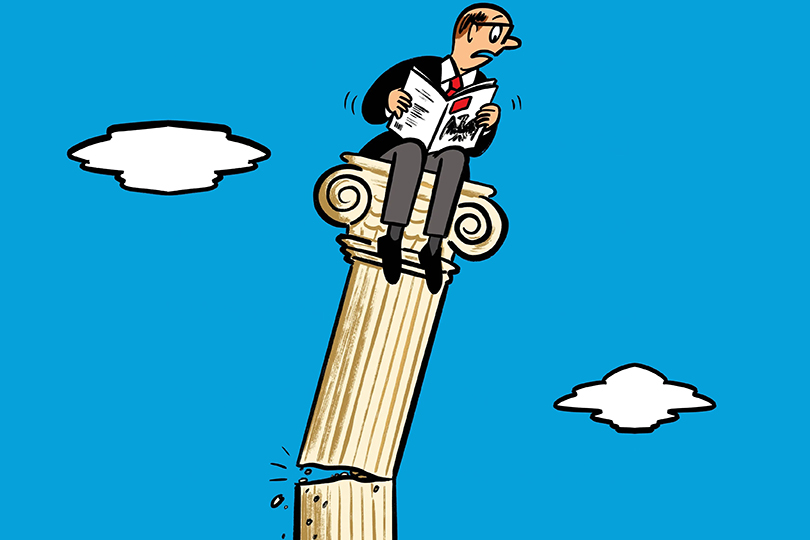By: Mohammad Abdul Jabbar Al-Shabout
Amid rapidly shifting geopolitical dynamics, the world is witnessing a renewed division between two major camps: the liberal democratic bloc led by the United States and its allies, and the authoritarian autocratic bloc led by China and Russia.
This division evokes memories of the Cold War, but with a key difference: most countries today are compelled to align with one of the camps, reducing the space for political neutrality.
The Erosion of the “Non-Alignment” Concept
The Non-Aligned Movement emerged during the Cold War as a neutral bloc of developing nations that refused to side with either the Western or Eastern blocs. However, today’s multipolar international order—marked by interwoven interests—has made it increasingly difficult for states to maintain their previous neutrality.
Unlike the Cold War era, today’s world leaves little room for “non-aligned” states in the classical sense. Virtually all nations—whether by choice or necessity—are aligned or forced to take sides.
In this new world order, the idea of “non-alignment” seems fragile in the face of global transformations.
The Global South: Between Hedging and Alignment
Many countries in the Global South—such as India, Brazil, and South Africa—are attempting to pursue flexible foreign policies that balance their interests with both camps. However, economic and political pressures make it difficult to sustain this balance, pushing some of these nations closer to one side.
Israel: The So-Called Democracy
In this divided world, Israel appears as “the odd man out.” It markets itself as a democratic state while engaging in policies that fundamentally contradict democratic principles:
- Discrimination Against Arab Citizens: Arab citizens in Israel face systemic discrimination in various sectors, including education, housing, and employment, effectively rendering them second-class citizens.
- Human Rights Violations in the Occupied Territories: Israel pursues oppressive policies in the West Bank and Gaza Strip, including arbitrary arrests, excessive use of force, and home demolitions—clear violations of human rights.
These actions starkly contradict the democratic values Israel claims to uphold, placing it at odds with the liberal democratic camp to which it ostensibly belongs.
This contradiction positions Israel in a morally ambiguous place and undermines its ability to genuinely represent the liberal values it professes to adopt.
Conclusion
The world today faces a significant challenge in maintaining a balance between great powers, as the space for political neutrality continues to shrink. In this context, nations must develop new strategies that preserve their independence and safeguard their national interests amid a transforming global system.
The world is returning to a state of division—one that leaves little room for grey zones.
You are either with democracy—as a value and a practice—or with authoritarianism, whether wrapped in religious slogans or nationalist rhetoric.
State neutrality is no longer a viable strategic option. In many cases, it has become a form of weakness—or complicity.
And living nations do not remain in the shadows.






Comments